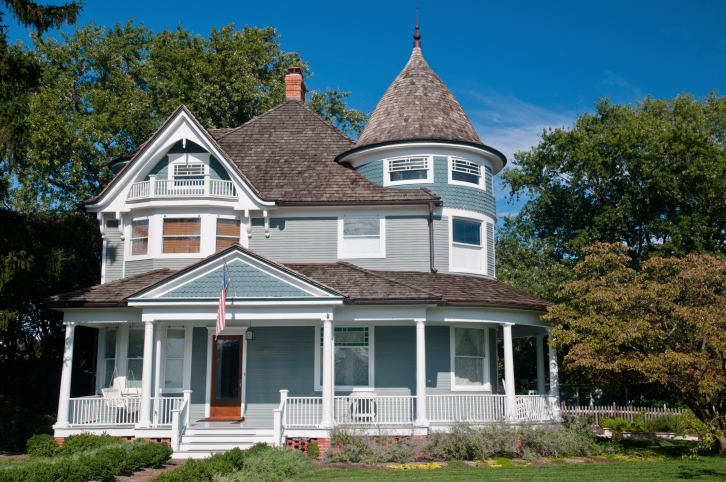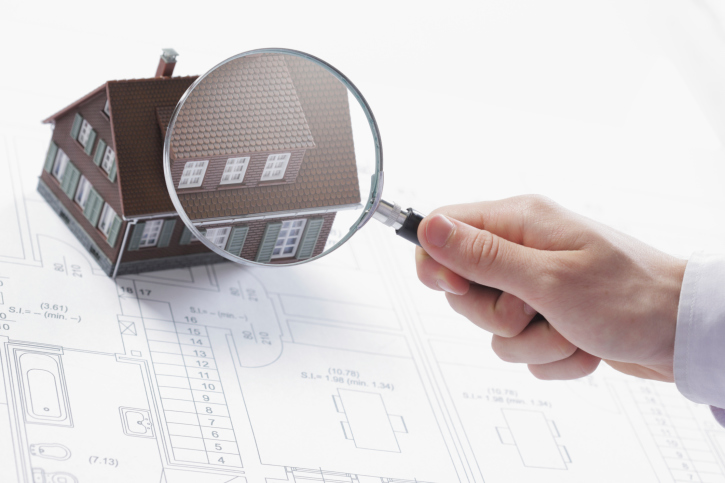 From the sales price to the general layout of the building, there are numerous factors that buyers will consider when touring homes. While there are specific factors that buyers may be searching for in a new house, there are also a few warning signs that home buyers should keep their eyes open for. The following are among the top red flags that may serve as warning signs.
From the sales price to the general layout of the building, there are numerous factors that buyers will consider when touring homes. While there are specific factors that buyers may be searching for in a new house, there are also a few warning signs that home buyers should keep their eyes open for. The following are among the top red flags that may serve as warning signs.
Signs Of Poor Home Maintenance
It is reasonable to expect all homes to have some signs of wear and tear unless they are new construction. However, it is also reasonable to expect that sellers have taken some steps to improve the condition and look of the property before listing it. When a home appears to be poorly maintained on a superficial level, home buyers should pause to consider what other aspects of the home have also been poorly maintained that are not visible.
The Grading In The Yard
When a yard grades toward the house, issues with erosion and even flooding may be concerns. Everything from a brief, torrential downpour to snow melt can result in water running toward a property when grading is a concern. Home buyers should take time to review the yard carefully to determine how water may flow when it rains or when snow melts.
A Foul Odor
It is common for sellers to try to make their home smell appealing, and different types of deodorizers may be used to mask everything from food smells to pet odors. However, it is important for home buyers to pay attention to the underlying smells in a home. Everything from a musky or mildew-y smell to sewage smells and gas odors should be warning signs.
Repairs To One Wall
Homeowners may repaint walls to make the space look cleaner, brighter and more appealing, so a fresh coat of paint by itself is not a warning sign. However, if the paint is on just one wall or if the area under the fresh coat of paint appears to have been recently textured or repaired, these are signs that water damage or other damage may have been addressed recently.
Signs Of Pests And Rodents
Another warning sign relates to signs of pests and rodents. Even if bugs and rodents are not visible during the initial tour, things like a can of bug spray, mouse traps and other related items may indicate that the seller has had an issue with bugs and rodents.
Some warning signs will be obvious during an initial home tour, but others may require more skill and experience to see. Because of this, it is best for all home buyers to consider ordering a property inspection to learn more about the condition of the home before finalizing their buying plans.
 Selecting the right home to purchase for a family is a monumental task, and this process can seem even more challenging for those with a large or growing family. A common goal may be to give everyone ample space to stretch out and feel relaxed, but some home buyers may also be focused on other factors like location, cost and even the general style of the home. While choosing the perfect home for a large or growing family is not easy, the process can be simplified by focusing on a few points.
Selecting the right home to purchase for a family is a monumental task, and this process can seem even more challenging for those with a large or growing family. A common goal may be to give everyone ample space to stretch out and feel relaxed, but some home buyers may also be focused on other factors like location, cost and even the general style of the home. While choosing the perfect home for a large or growing family is not easy, the process can be simplified by focusing on a few points. While some home buyers only want to live in a brand new home and will custom build a home to their specifications, others are drawn to the historic character and charm of a classic home. Older homes may have incredible architectural detail and special features that you simply do not want to change. However, there are some essential features that should be upgraded as soon as possible after you take ownership of your classic home.
While some home buyers only want to live in a brand new home and will custom build a home to their specifications, others are drawn to the historic character and charm of a classic home. Older homes may have incredible architectural detail and special features that you simply do not want to change. However, there are some essential features that should be upgraded as soon as possible after you take ownership of your classic home. The process of buying a home can be riddled with obstacles. However, you can avoid many of the most common home buying pitfalls with some advanced preparation. Below are some of the most frequent problems home buyers face, as well as tips for avoiding them.
The process of buying a home can be riddled with obstacles. However, you can avoid many of the most common home buying pitfalls with some advanced preparation. Below are some of the most frequent problems home buyers face, as well as tips for avoiding them.  When buying a new home, you may have a close eye focused on your budget and expenses, and your goal may be to keep related expenses to a minimum. However, you may also be well aware that a real estate purchase is a legal transaction, and you may be wondering if you need to pay for legal services from a real estate attorney. With a closer look, you can make a better decision that is right for your home buying plans.
When buying a new home, you may have a close eye focused on your budget and expenses, and your goal may be to keep related expenses to a minimum. However, you may also be well aware that a real estate purchase is a legal transaction, and you may be wondering if you need to pay for legal services from a real estate attorney. With a closer look, you can make a better decision that is right for your home buying plans. As a home buyer, you may go through a number of different steps to ensure that the property that you purchase is in great condition. For example, you may complete an initial walk-through or even several home tours before you make an offer. You may also order a property inspection and even negotiate for the seller to make some repairs on your behalf.
As a home buyer, you may go through a number of different steps to ensure that the property that you purchase is in great condition. For example, you may complete an initial walk-through or even several home tours before you make an offer. You may also order a property inspection and even negotiate for the seller to make some repairs on your behalf.